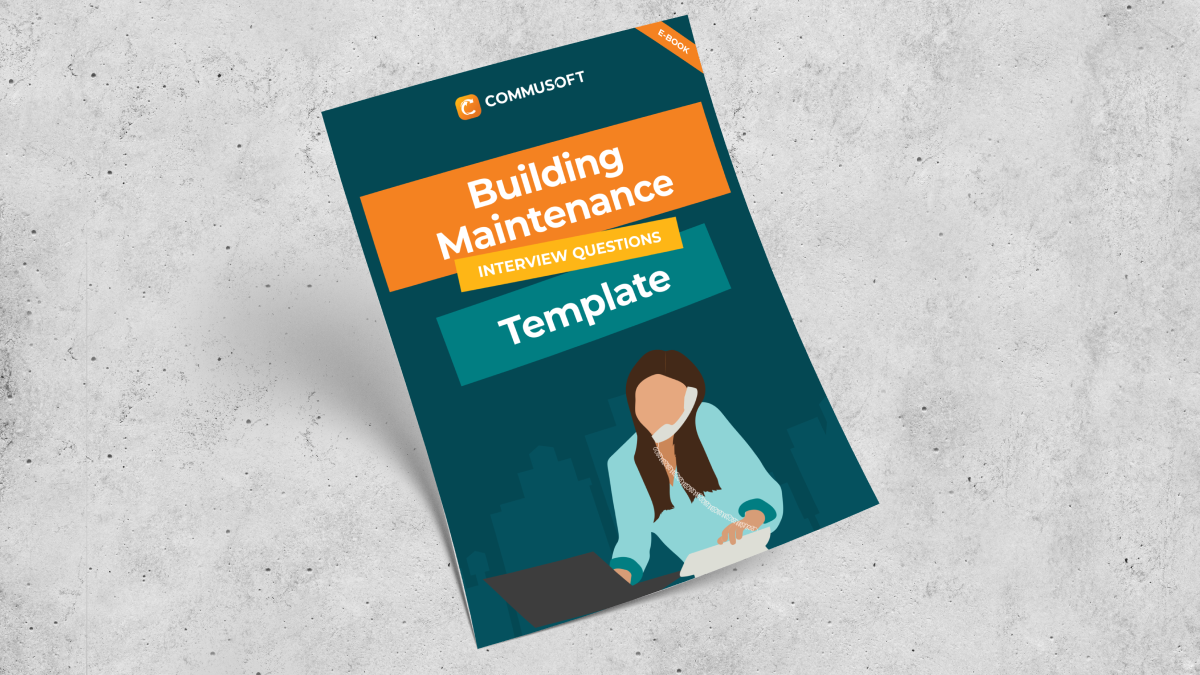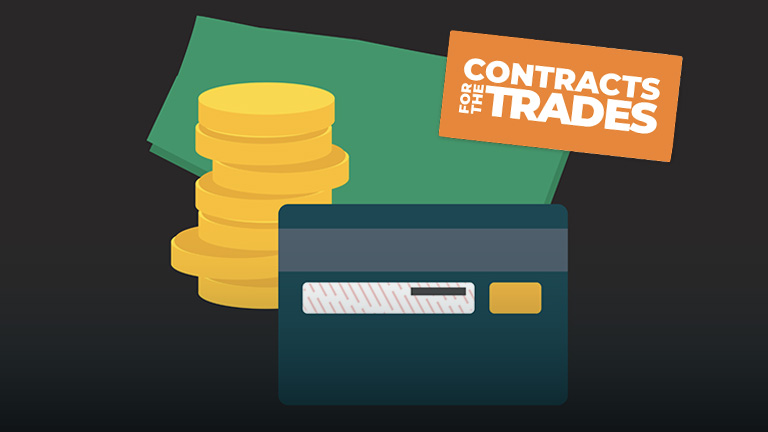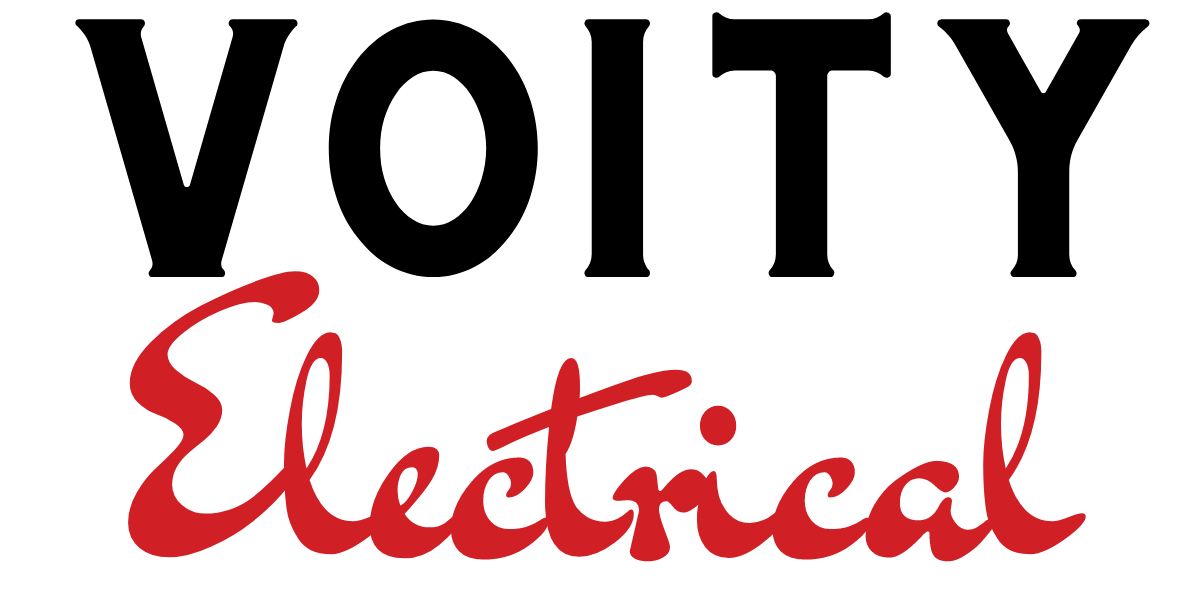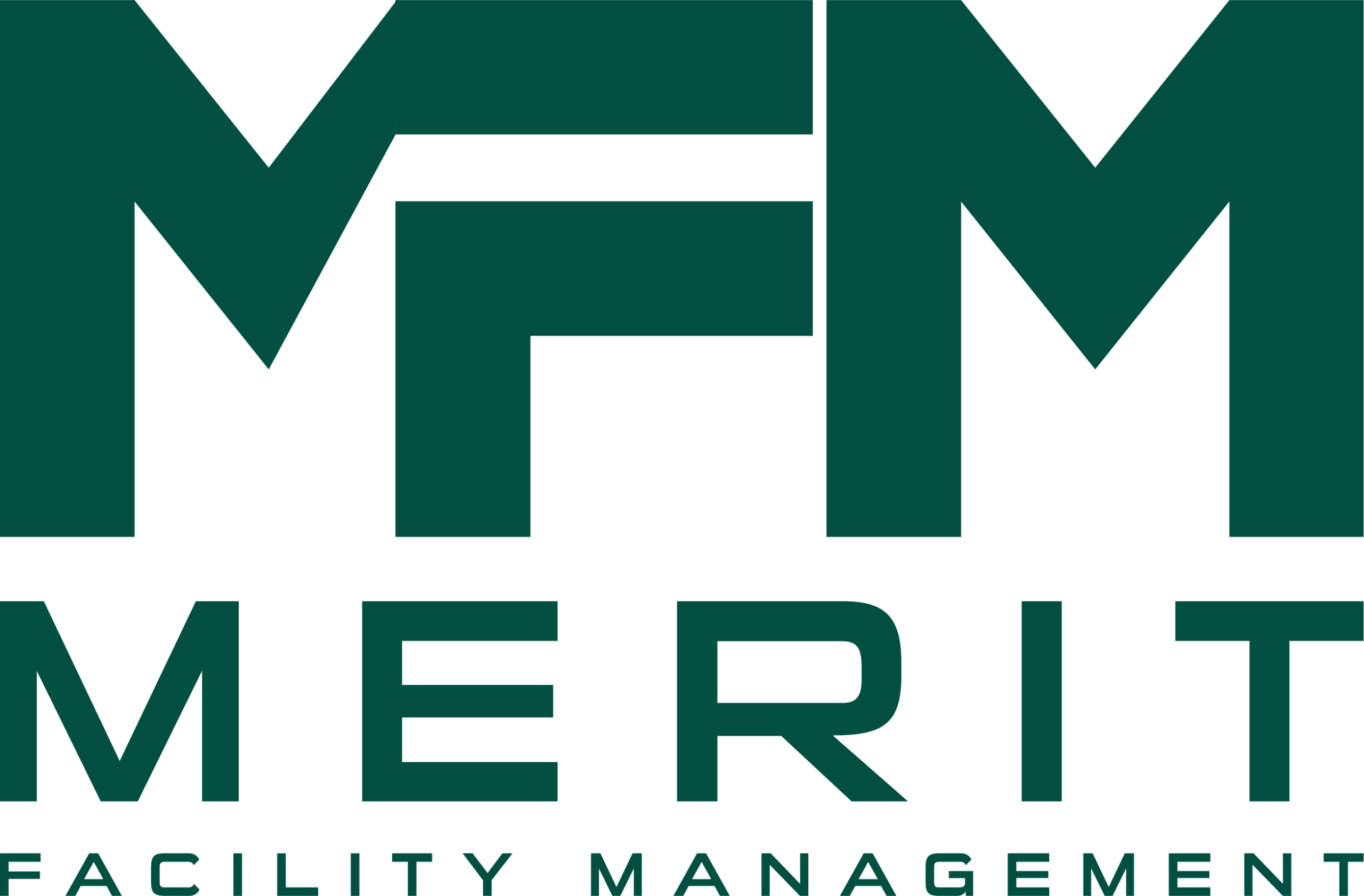10 Tips for Winning Facility Maintenance Contracts
October 23, 2023 | Read: 13 minutes

Facility maintenance contracts are one of the best ways to expand the scope of your field service business and increase recurring revenue.
In addition, to best serve their customers, commercial building managers need to hire a trade business they can trust and you must be prepared to handle all of their needs.
In this blog, we’ll cover what facility maintenance contracts are, what yours should include, and ten ways your agreements can help you win the business you want most!

What Are Facility Maintenance Contracts?
Facility maintenance contracts are legal agreements between a trade service provider and a commercial building manager that outline the requirements of your business to meet their maintenance needs.
This document usually includes terms and conditions, relevant service level agreements (SLAs), any specific maintenance, inspection schedules, and payment terms.
Types of Facility Maintenance Contracts
Commercial building maintenance comes with a variety of requirements that you’ll have to determine with the facility you’re working with. Offering various options will greatly increase the chances of winning the contracts you most want. Some common examples of service contract types include:
- Tiered contract plans: such as bronze, silver, and gold that offer different levels of service based on the value.
- Required inspections: including fire systems, elevators, HVAC units, plumbing amenities, and anything the need to maintain at required intervals.
- Emergency call-out plans: that outline what actions will take place, how quickly you will arrive on site, and any associated fees in case of an unexpected break.
- Seasonal plans: including services like snow removal, gutter cleaning, or pesticides.
Main Components of a Facility Maintenance Contract
As noted earlier, facility maintenance contracts can be built and customized to suit any circumstance or building type. However, there are many components of contracts that overlap. Let’s review what you need to include.
Contract Overview
Regardless of the type of company you get under contract, each of your agreements should include the following sections.
• Contract Scope and Description of Services
A general overview and the most referenced terms should be easily accessible to the customer. The services covered, and most importantly, not covered under your facilities maintenance contract should be abundantly clear, both internally and to your clients.
• Service Levels and Standards
Be sure to outline service standards and time-based agreements clearly. Providing detailed breakdowns, and meeting them, will set you apart from competitors, making it easier to renew contracts.
On the other hand, don’t commit to terms you might not be able to meet. If you do and are unable to fulfill them, they could cost you more in fees or free service over time. It’ll also make building a loyal customer base difficult.
• Pricing Structure and Payment Terms
If you want to get paid on time, your facility maintenance contracts need to provide a straightforward explanation of your terms of payment. Be sure to include any discount options, financing, bank transfer, or credit card payment options.
When you have a customer self-service portal where clients can view invoices and signup for automatic payment options, it makes the payment process simple and straightforward.
• Contract Duration and Renewal Options
Contract renewal should always be the long-term goal. Make sure customers understand how to extend their agreements with your business.
If you go above and beyond and meet their needs, there’s a good chance they renew with you. Just make sure they’re aware of when it’s happening and if there are any pricing changes.
Service Execution
Use this section of your contract to prove your company’s devotion to customers and set yourself apart from competitors!
• Scope of Work and Deliverables
This is where you should definitively summarize what your team is responsible for and when services will be carried out.
• Frequency of Service and Emergency Response
Depending on your agreement and customer, contracts with instances of urgent call-outs may be necessary. Provide a breakdown of circumstances that are, and aren’t covered, so customers know when they can depend on you!
• Team Overview and Qualifications
Your customers want to work with the best service providers. Providing an introduction to your team, their capabilities and certifications, and success stories or awards will make it easier to win new business.
If possible, include testimonials on your website that showcase your success and what clients can expect when working with you.
• Health and Safety Protocols
Knowledge of, and devotion to health and safety is critical in facility maintenance. Whether your team needs to follow local, state, or federal regulations, it’s important to prove you know how to exceed requirements.
An easy way to show clients that you are responsible and follow all regulations is by having multiple PPM checklists that your field service technicians can easily access from anywhere.
Performance Management
Showing customers how your team will be held responsible, and how performance is measured is a great way to build trust.
• Performance Metrics and Reporting
Sharing past successes, showing off your past work, and how your team can be held responsible is proof that your business values will exceed customer expectations.
• Quality Control and Compliance
Be sure to highlight that your team is aware of relevant regulations or agreements along with the steps you’ll take to meet them.
• Key Performance Indicators (KPIs) and Service Level Agreements (SLAs)
Listing out the maintenance key performance indicators (KPIs) used to measure your team’s success not only impresses prospective customers, it proves you have smooth internal processes and know what each team member is responsible for.
Showing potential customers you always meet and stay within service level agreements will convince them to select you as their main service provider. Using software to monitor SLAs that alerts you if you’re close to a breach will keep you compliant and customers happy.
Resources and Technology
Showcasing the equipment your team uses to stay on top of contracts is a great way to stand apart and stay organized.
• Equipment and Resource Allowance
It’s a good practice to outline the tools that will be used for each of your services. This also ensures your internal team understands which tools and parts are required for the job.
• Use of Technology and Tools
Further, you should notify your customers if your team will use equipment that’s noisy or large enough to inconvenience any passersby.
• Inventory Management and Documentation
Recordkeeping is crucial, especially if you work with subcontractors or vendors. For your parts management and invoicing, your company and customers should have accurate accounts of what inventory was used.
Risk and Legal Considerations
Facility maintenance contracts are serious documents. Your business needs to understand the legality and responsibilities of any service agreements you set.
• Risk Assessment and Contingency Plans
Job site safety is a must. The best service companies will describe how they handle and respond to risks.
• Insurance Coverage and Liability Provisions
Listing your company’s insurance will help build trust in your business. If a company finds out you’re uninsured, it could get you into legal trouble and there’s a good chance they’ll spread negative word online about the business.
• Legal Framework and Compliance
Use this opportunity to explain any terms and conditions of hiring your business.
Communication and Collaboration
Outlining how you keep customers updated is essential. After all, good customer communication makes contract renewal much easier!
• Communication Channels and Response Times
Listing office hours, how to get in contact in case of emergencies, and how often your team will check in is so important. You want customers to know they’re cared for.
• Customer Feedback and Resolution Procedures
Let your customers know you take their concerns seriously! As you know, their happiness is everything. Use this space to explain how they can share any comments with your team.
• Collaboration With the Customer’s Team and Stakeholder Engagement
If you know, be sure to identify which team members your business will be in contact with. This will clear up any confusion about future communication!
Change Management and Improvement
Facilities maintenance and the trades industries are always changing. Agreements and laws are always prone to change. Use this category to highlight your team’s awareness and flexibility.
• Handling Changes in Scope and Change Control
Your trades business should prove that you’re able to pivot, whether contracts need to be adjusted or if customers need a more personalized payment structure. This could make the difference between winning or missing out on a contract.
• Continuous Improvement Initiatives and Feedback Incorporation
You should always be improving. Explain to prospective customers how your services changed for the better after incorporating suggestions from past clients! When you send an invoice, make sure customers can easily provide feedback or leave a review.

How to Win Facility Maintenance Contracts
Now that you understand what your facility maintenance contracts should include, here are ten tips that can help your team win more deals!
1. Tailor Your Proposal to Align With Your Customer’s Needs

While it’s a great place to start, a copy-and-paste template for each opportunity isn’t going to cut it! After all, each customer and facility has unique requirements.
Taking the time to understand prospective customers and how your business can help can significantly increase your win rate. Further, understanding the types of facilities you do and don’t want to service ensures your team allocates more resources towards winning the contracts you want most.
2. Highlight Your Team’s Expertise and Share Licenses, Insurance, & Permits
Your team, from the office to the field, plays significant roles in winning, maintaining, and renewing your contracts. Emphasizing their combined years of experience, successful past contracts, notable awards, certifications, or licenses, can make your service contracts much more compelling.
Sharing relevant credentials will let prospective customers know they’re in good hands.
3. Offer Competitive Pricing
Your prices can heavily impact your contract win rate. Looking into competitor pricing is a good way to understand where you can compete.
To add value to customers and separate your business, see if you can offer better package deals. Remember, while you can offer lower prices, you don’t want to be the cheapest option; you want to be the best option!
4. Clearly Outline Pricing Structures
Prospective customers will appreciate honesty and transparency about your pricing. One way to stand apart is to offer pricing breakdowns covering labor, inventory, out-of-hours call-out fees, taxes, credit card fees, and more.
Further, you should also highlight any discounts, like reduced rates for veterans, or coupons, like a free emergency call-out with the purchase of an inspection plan. This is a great way to highlight your dedication to customer care.
At the end of the day, being prepared with a variety of pricing options benefits everyone involved!
5. Showcase Your Use of Advanced Technology
Even the best teams can’t effectively manage facility management contracts without the right tools. That’s why service contract management software, like Commusoft, were created. Organizing each customer, and unique information like work addresses, assets, billing preferences, and PPM calendars in one facility maintenance software streamlines contract management.
6. Establish Clear SLAs and KPIs
Being straightforward with what you plan to accomplish is great for customers and your team. Success is easier to accomplish when everyone is on the same page.
Here are some SLAs to offer:
- Responding to an inquiry within a certain timeframe
- Arriving at the job site within a certain timeframe
- Obtaining unforeseen parts within a certain timeframe
- Guaranteed first-time fix rate
- The frequency of your inspections
Here are some team KPIs to track internally:

- How much profit each contract makes
- Technician performance in the field
- How well dispatchers optimize team schedules
- The amount of time spent on site
- The amount of jobs completed on the first visit
7. Highlight Your Robust Safety Protocols and Compliance
Setting up the right field and office workflows ensures appointments can be completed faster, and with less stress. Further, when safety is the top priority, it’s important to emphasize the methods your team stay safe on the job.
Many service companies utilize job arrival and completion workflows, which mandate technicians complete safety procedures, like site inspection forms, detailed photos of assets, and job reports before they can leave the appointment. Not only does this protect your team, but these results can also be shared with customers. It’s a great way to prove you are experts in your field and take safety seriously. Discover how asset maintenance software can streamline technician workflows.
8. Your Dedication to Exceptional Communication and Customer Service
Communication is key. Be sure to explain the methods and timeframes your team will stay in touch with, whether it be phone calls, SMS, or email. Top-tier facility maintenance businesses offer three-way communication. This is communication between the office, field technicians, and your customers.
The best job management products offer options for customers to get in contact 24/7. With a customer portal, for example, facility managers can digitally request appointments any time of day, access job reports and custom forms, and review outstanding invoices.
Your office admins should have access to all customer details from one place, and the ability to quickly schedule and dispatch technicians thanks to real-time vehicle tracking and smart scheduling. When customers come with questions, your employees can rely on internal processes to handle them swiftly.
Depending on the type of contract, the scope of services you will provide, and any regulatory compliance that needs to be met, it’s important to empower technicians in the field. From their mobile devices, technicians should have access to full asset and service histories, certificates, parts inventory, and more.
This system ensures all the parties involved with the facility maintenance contract have the information they need when they need it. After all, in such a competitive landscape, going above and beyond is essential!
9. Describe Your Continuous Improvement Initiatives
Facility managers want to work with service providers who understand their industry, and all the changes that come each year.
Showcasing the ways your team is always working to improve is a good way to build confidence in your business. Even if you’re a small business, highlighting plans to grow your team, increase your service territory, or diversify your service offerings showcases that you’re in it for the long run.
10. Differentiate Yourself From The Competition with Transparent Reporting
Standing apart from local competitors is difficult. Outside of your pricing structure, here are more ways to distinguish your business. Here are some methods that can make selling contracts easier.

- Offer a prioritized response in case of emergencies
- Highlight your use of advanced technology
- Provide custom solutions, timelines, and payment structures
Sharing compelling statistics, customer testimonials, and proof of past success will establish your organization as a frontrunner in the facilities maintenance industry.
Further, if you know a prospective customer is concerned about a certain KPI or SLA you track, you can share your success rates to prove why hiring your team is the best option.
Win More Facility Maintenance Contracts Today!
Ready to take your facility maintenance contracts to the next level? Commusoft’s facility maintenance software can efficiently handle your commercial contracts, planned preventative maintenance schedules, job management, and so much more!
With Commusoft organizing all aspects of daily operations, you can wow your customers with 24/7 personalized self-service options, be there when customers need you most, and offer unique invoicing and payment options.
Learn more about service contract management, or book a call with our team to get started today!

Emma Bozenda
When I'm not writing about the best digital solutions for trades businesses, I'm either playing with my three dogs, or baking sweet treats!








